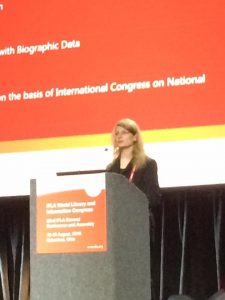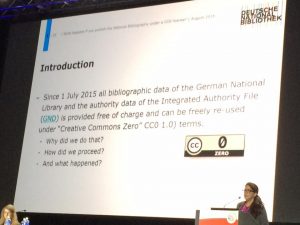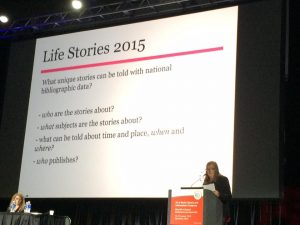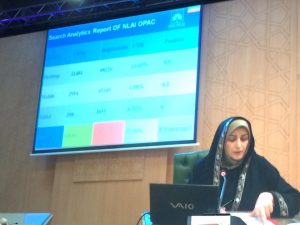The changes brought about by the World Wide Web together with the dramatic growth of digital media have called into question many key assumptions on which national bibliography were founded. At the IFLA Bibliography Standing Committee’s Warsaw satellite meeting to the IFLA 2012 Congress a new web based resource was announced to replace the original printed National Bibliographies in the Digital Age: Guidance and New Directions (2009). After several years of development this new resource will be launched at the IFLA Congress in August 2015.
Why create this new resource?
In an era of disruptive change libraries require authoritative and current best practice guidance on an increasing range of bibliographic issues. The rapidly evolving nature of the subject matter means that a more flexible, open and dynamic solution than traditional printed text is needed. To address this need the IFLA Bibliography Standing Committee has created ‘Best Practice for National Bibliographic Agencies in a Digital Age’ using the new ‘Book Page’ option available on IFLA’s web site.
The new resource is not intended to be prescriptive since bibliographic control inevitably varies widely from country to country and local requirements may be influenced by financial, legal or practical constraints. A number of potential options will therefore be presented to enable their application to be tailored according to individual circumstances, with examples and use cases given to illustrate the possible range of approaches
What topics are covered?
The new resource aims to offer information on a wide range of topics of interest to those involved in the management of bibliographic information. Examples include:
- Service delivery & lifecycle
- Resource description & standards
- Business models & administration
- How to demonstrate the continuing utility & relevance of services?
- When to create, develop or cease services?
- How to decide on appropriate service delivery options
- What options exist for user support?
How is the resource organised?
In order to ensure the site is easy to use and yet remain flexible for future developments it has been organised by key themes which are further divided by topic. The main themes are:
- Background
- Organisation
- Purpose and value
- Scoping and selection
- Resource description and standards
- Service delivery
- Glossary/Useful links
- Bibliography
These thematic sections provide links to back up sources to ensure continuing relevance and currency and will be supplemented by ‘real world’ cases that show how libraries are tackling the challenges. It is hoped this sharing of experience will benefit not only new and existing national bibliographic agencies but all who wish to respond to the bibliographic opportunities offered by new technologies and media.
How will the site be kept up to date?
Following the launch, the IFLA Bibliography Standing Committee intends to implement an annual work cycle to maintain and extend the resource as new areas of interest emerge. The SC is also seeking input from experts and other IFLA committees to contribute text or review sections in order to keep it as accurate and relevant as possible.



